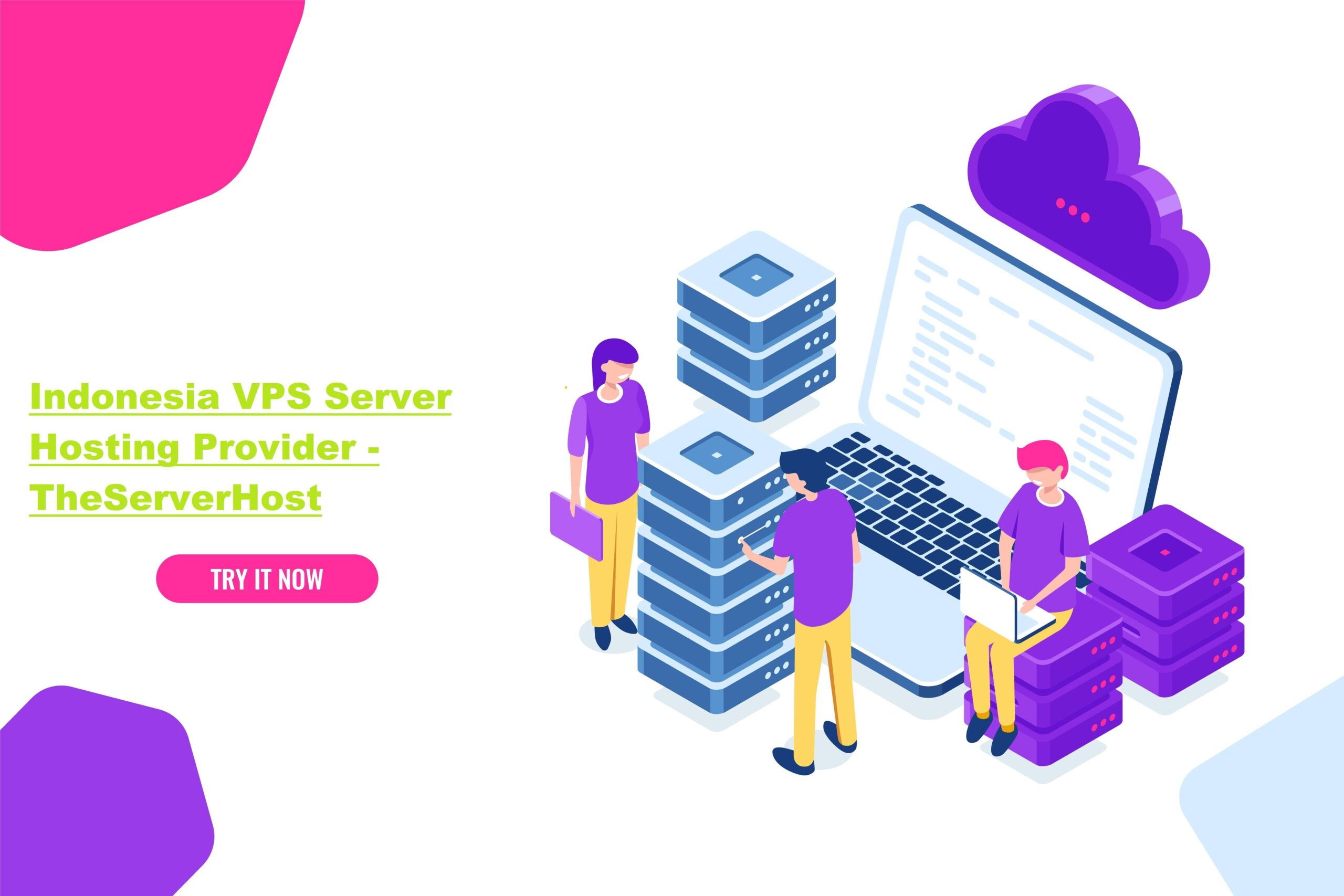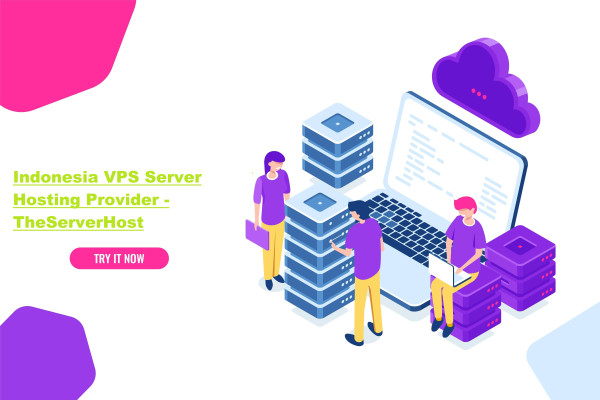Launched New Indonesia Data Center for VPS Server Hosting at Jakarta by TheServerHost

High Uptime Low Cost managed Indonesian VPS Server Hosting Plans with Jakarta based IP

Delhi, Delhi, India, 19th Jan 2023 – TheServerHost Data centers provide a centralized computing infrastructure to support crucial business applications. Typically, data centers consist of servers, storage, and networking equipment. They also contain environmental control systems and backup power to keep data secure. The infrastructure can be customized to meet specific business needs.
It is a fact that today’s organizations rely on data centers to meet their business demands. Whether client are large corporations or small businesses, the data center is the technological hub of their operations. Data centers are used to store digital information and deliver services. In addition to this, data centers also provide backup components and security devices.
Many of today’s data centers use a smart control system called DCIM. This helps to optimize cooling, power, and climate. It takes the concepts of a “smart house” to the next level. In addition to making these components work together, a DCIM system can be used to ensure that the facility is functioning properly.
Cloud-based data centers are ideal for companies that don’t want to invest in a permanent real estate facility. Alternatively, colocation data centers are ideal for organizations that are expanding and need additional capacity. These facilities enable businesses to track critical parameters and manage their operations.
Traditional data centers can consist of single or multiple floors. They are typically built around a rack, which contains multiple servers. Each server has its own processor, memory, and storage space. Storage devices such as hard disk drives, tape drives, and solid state drives are used to store data.
TheServerHost Indonesia data centers, are designed to be very scalable. They house thousands of servers and can be expanded as needed. Typically, they are located in downtown areas with mature fiber infrastructure. Because these facilities are so large and specialized, they require a large amount of effort and time.
For cloud-based data center, there are certain standards and regulatory requirements that must be met. They also need to follow operational standards such as the Sarbanes-Oxley Act and ISO 27001 for information security.
There are several different features to look for in a data center infrastructure. Some of these include security, flexibility, power monitoring, and real time energy draws. All of these features are important to have in order to have a reliable and efficient data center that will provide your company with the capabilities it needs to grow and succeed in the future.
While designing an efficient data center, provider should consider the capacity and current workloads of client organization. This helps ensure that the data center can grow with client business in the future.
Data center design is an extensive process. It involves planning, construction, and commissioning, among other things. As such, it is important to hire an expert for assistance. These experts can help you make the most of your space and resources and improve your facility’s uptime.
Power monitoring with alerts before circuits fail
Power monitoring is a vital component of data center operations. It helps operators better allocate power and decrease unintentional power overloads. Aside from reducing maintenance costs, it also extends the lifespan of critical equipment.
Data centers are the heart of any business operation. As such, they need to be reliably powered. Unfortunately, failures can cost thousands of dollars and result in lost productivity.
Power monitoring can be done by using an array of technology, from smart devices to utility feeds. Some solutions are designed to provide the simplest of information, while others offer a full suite of sophisticated features. The purpose of power monitoring is to collect real-time data on power usage, which can be used to determine optimal allocations and monitor the performance of different pieces of equipment.
Security systems in data center rooms
When it comes to security, data centers require various types of security systems. Security systems for data centers are required to protect against any kind of physical or cyber threats. However, there are also other elements that need to be considered to ensure that the data center stays secure.
For example, a comprehensive CCTV system is a necessary part of data center security. It allows for round-the-clock surveillance, while also enabling organizations to identify and prevent criminal activity.
In addition to security cameras, access control systems are another important element to consider. Many organizations rely on biometrics, such as fingerprint scanners, to ensure that only authorized personnel have access to their facilities. Other access controls include radio frequency identification and pin pads.
For large data centers, it might be a good idea to implement a central master station, which provides a centralized management console. This can enable organizations to integrate several systems into one interface and to monitor all threats simultaneously.
Another type of security measure for data centers is the use of fire and flood suppression. A dry-pipe system only releases water if a fire is detected. Crash-proof barriers should be installed to keep a buffer zone of at least 100 feet around the facility.
Having a strong hiring process is also crucial. Ensure that your employees are well-trained, professional and trustworthy.
While not as common as cyberattacks, physical attacks are still a real threat to your data center. If a data center is breached, the loss of data can be huge.
According to the Ponemon Institute’s 2019 Cost of a Data Breach Report, 49% of breaches were attributed to human errors. Therefore, enforcing specialized security measures throughout the data center is a good idea.
As far as the protection of server racks is concerned, locking mechanisms should be used to keep external devices out. Additionally, video content analytics can help detect unauthorized people and objects.
A common data center security measure is an intrusion prevention system (IPS), which is often paired with a firewall. A firewall is used to secure the network and keep out viruses, malware, and other malicious programs. Another common security technique is access control. If a person cannot prove his or her access through two or more factors, such as a personal password or PIV card, the user can be denied access.
One way to keep your data center secure is to create a number of “secure zones” in your network. You can divide your network into three different areas, each with a specific level of protection. This layering of access helps prevent external threats from visitors, employees, and other external actors.
Lastly, security systems for data centers need to be maintained 24×7. To do this, you should make sure that your alarm systems and door control system are working properly.
Servers
A data center is a complex system of network equipment, computers, and software that enables the storage and processing of digital information. Using advanced technologies, these facilities are able to handle high-volume traffic without compromising performance.
Servers are the main component of a data center. These pieces of hardware contain memory, processors, and storage. They are usually stored in racks or cabinets. Each server can run a single application or virtualized applications.
Data centers are designed to be secure, and they rely on software and networking equipment to protect the information they house. Many data centers incorporate security features such as firewalls and intrusion detection systems.
Power infrastructure is one of the most important components of a data center. It consists of power supply, backup generators, and cooling equipment. Usually, these backup systems are redundant. But a failure of just a fraction of a second can be devastating.
Network infrastructure is a vital part of a data center. The components include routers, switches, and other networking equipment. Modern data centers rely on full-stack networking platforms that support rich sets of data services. Software-defined networking brings cloud-level scalability to on-premises networks.
Data center storage includes external storage solutions as well as internal storage. It also includes backup management software utilities and software-defined storage technologies that increase staff efficiency and reduce the amount of storage required.
Cooling infrastructure
Investing in the right cooling infrastructure can help extend the life of your servers, thereby improving your bottom line. But if your data center isn’t properly cooled, you could end up with equipment that’s overheated, which can lead to equipment failure, as well as increased power and capital expenditures. Luckily, there are ways to mitigate this risk and make your data center a greener place.
A data center is a specialized environment, and requires a specific set of technologies to keep it operating efficiently. From temperature controls to HVAC and even artificial intelligence, there are a variety of solutions available to make your facility more energy efficient.
One of the most important is heat cooling. The concept is simple: it’s a way to replace the warm air inside your facility with cool air outside. Unlike conventional air conditioners, which are powered by a compressor, a heat-cooling system uses a refrigeration unit to pump in cool air from outside.
Another technology is direct-to-chip cooling. This is a more effective alternative to conventional cooling methods. It uses a cold plate that sits on motherboard chips. Cooling this way is a lot more energy-efficient than using the conventional air conditioner method.
However, the most advanced type of cooling system is still liquid cooling. To make the most of this, your data center needs to be equipped with the proper airflow and humidity control.
Uptime
Data center uptime is a measurement of how well a data center performs in terms of its capacity to provide power and connectivity. The uptime of a data center can protect it from equipment failure, human error, and third-party services. It also provides protection against power outages.
Uptime of data center infrastructure is important in order to meet modern business demands. A recent study found that major financial firms, e-commerce companies, and gaming enterprises lose millions of dollars annually due to latency. In addition, the cost of downtime is increasing. Despite the rising costs, many data center operators are not prepared for the demands of sustainability.
Geographies
A number of factors determine the location of data centers. These include power availability, security, demographics, and climate.
The cost of electricity varies widely across regions. Some countries require alternative power sources. Others may provide tax breaks to companies that develop and use renewable energy.
Generally speaking, the largest server farms are built in areas with abundant land. Larger facilities also utilize outside air cooling, which can lower the operating costs of the facility.
For Indonesia VPS Server visit https://theserverhost.com/vps/indonesia
For Indonesia Dedicated Server visit https://theserverhost.com/dedicated/indonesia
Media Contact
Organization: TheServerHost
Contact Person: Robin Das
Email: support@theserverhost.com
Website: https://theserverhost.com/
Address 1: 493, G.F., Sector -5, Vaishali, Ghaziabad 201010.
City: Delhi
State: Delhi
Country: India
Release Id: 1901232245
